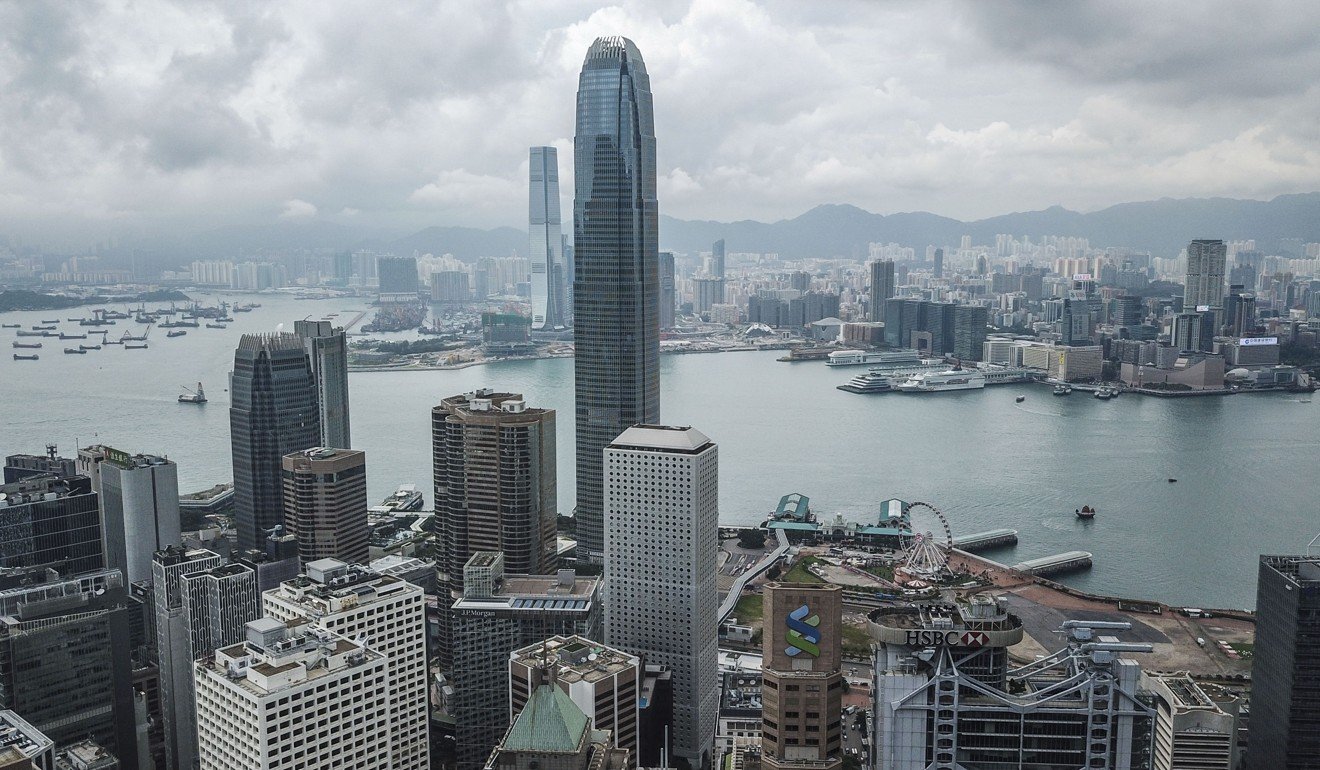
Office rents in Hong Kong’s Central district to fall by up to 7 per cent as trade war dampens Chinese firms’ expansion plans, says Knight Frank
- Knight Frank’s latest global outlook report forecasts office rents in the city’s main business district to fall by as much as 7 per cent this year
Prime office rents in the Central business district are forecast to decline by as much as 7 per cent this year as mainland Chinese companies pare back their expansion plans amid uncertainties ranging from the US-China trade war to cooling domestic economic growth, according to Knight Frank’s latest global outlook report released on Thursday.
“There are already signs of market softening since November, the first time in 29 months. An uncertain China-US trade relationship and the mainland’s own market challenges have curtailed demands from some mainland firms for prime office space,” said David Ji, director and head of research and consultancy for Greater China at Knight Frank.
Average rents of grade A offices in Central declined by 0.3 per cent to HK$163.7 (US$21) per square foot per month in November from the prior month, reversing a rising trend that has lasted for nearly three years.
Knight Frank forecasts rents will drop 1 to 4 per cent on average across the city. A sharper drop of 4 to 7 per cent is expected for the Central business district. Meanwhile the office vacancy rate will edge up to 2.4 per cent by 2021 from 2.3 per cent in 2018, according to Knight Frank.
Other property consultancies released similarly gloomy outlooks, with Cushman & Wakefield forecasting rents in Central and the nearby areas of Sheung Wan and Admiralty will fall by 4 to 6 per cent this year. Colliers International forecasts grade A office rentals in Central and Admiralty will retreat by 3.8 per cent.
The Chinese economy grew 6.6 per cent in 2018, the slowest growth in nearly three decades, dragged by factors that include Beijing's crackdown on debt and risky spending.
Hong Kong is likely to keep its crown as the world's most expensive city to lease office space, even as rents begin to deflate, Knight Frank said.

The consultancy estimates annual office rents in Hong Kong would cost US$239.54 per square foot in 2019, lower than the estimated rent of US$252.15 in 2018, but still higher than US$233.16 in 2017.
Office rents in Hong Kong have averaged US$193.67 over the past 10 years.
Hong Kong office rents are more than double those in Tokyo, the world's No 2 most expensive city for office space. Tokyo’s annual office rents are forecast at US$111.81 per square foot in 2019.
Antonio Wu, deputy managing director at Colliers International agreed that the trade war created uncertainties, leading mainland companies to be more cautious.
“I think the leasing market overall is still strong but the Central business district has probably reached the peak. The rental rate will be softening due to some mainland firms either downsizing or looking for replacements,” he said.
In July, the US began imposing a 25 per cent tariff on US$50 billion worth of Chinese products, a decision that provoked a retaliatory levy from China on the same amount of American goods.
The dispute escalated in September when the US imposed a 10 per cent tariffs on US$200 billion of Chinese imports, while China responded with tariffs on US$60 billion worth of American goods.
US President Donald Trump and Chinese President Xi Jinping agreed to a 90-day tariffs truce in December, and a new round of high-level negotiations that could extend the truce.
Failure of the parties to agree to extend the deadline would mean US tariffs on US$200 billion of Chinese imports are to increase from 10 to 25 per cent by March 1.
“We have also seen some similar softening of demand from mainland firms in Southeast Asia, and gateway cities such as London on office leasing and investment markets,” said William Beardmore-Gray, head of occupier services and commercial agency at Knight Frank.
“The geo-political threats like Brexit and the US-China trade war make it difficult for firms to plan the future.”
He added that limited supply of new office space in Hong Kong after years of under development meant that many mainland companies would feel forced to enter the market in 2019 to avoid missing out on a preferred location.

